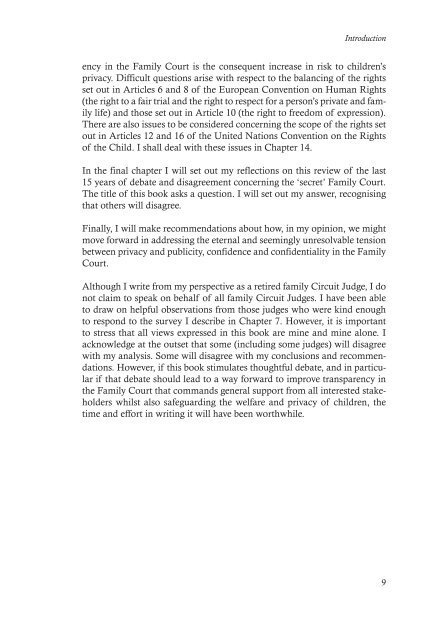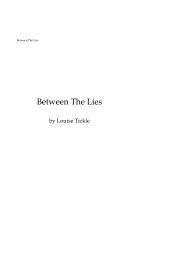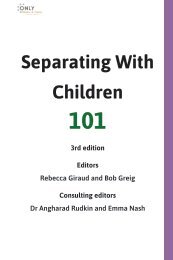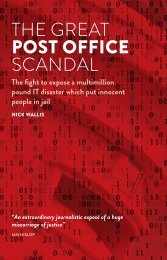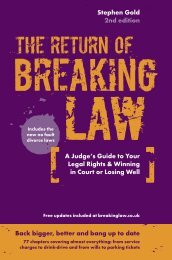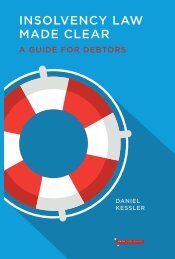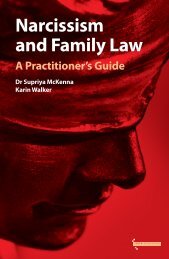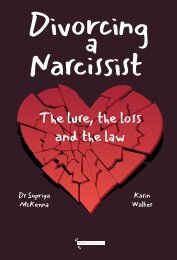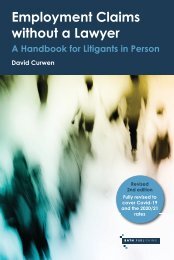The 'Secret' Family Court: Fact Or Fiction?
For approaching two decades, family courts have been accused of making life changing decisions about children and who they live with made in secret, away from the scrutiny of the public gaze. Recognising the force of these accusations, senior family courts judges have, over that time, implemented a raft of rule changes, pilot projects and judicial guidance aimed at making the family justice more accountable and transparent. But has any progress been made? Are there still suspicions that family judges make irrevocable, unaccountable decisions in private hearings? And if so, are those suspicions justified and what can be done to dispel them? In this important and timely new book, Clifford Bellamy, a recently retired family judge who has been at the sharp end of family justice during all these changes, attempts to answer those questions and more. He has spoken to leading journalists, judges and academic researchers to find out what the obstacles to open reporting are – be they legal, economic or cultural - and interweaves their insights with informed analysis on how the laws regulating family court reporting operate. Along the way he provides a comprehensive review of the raft of initiatives he has seen come and go, summarises the position now and uses this experience to suggest how this fundamental aspect of our justice system could adapt in the face of this criticism. Every professional working in the family justice system – lawyers, social workers, court staff and judges - as well as those who job it is to report on legal affairs, should read this informative, nuanced exposition of what open justice means and why it matters so much to those whose lives are upended by the family justice system.
For approaching two decades, family courts have been accused of making life changing decisions about children and who they live with made in secret, away from the scrutiny of the public gaze. Recognising the force of these accusations, senior family courts judges have, over that time, implemented a raft of rule changes, pilot projects and judicial guidance aimed at making the family justice more accountable and transparent.
But has any progress been made? Are there still suspicions that family judges make irrevocable, unaccountable decisions in private hearings? And if so, are those suspicions justified and what can be done to dispel them?
In this important and timely new book, Clifford Bellamy, a recently retired family judge who has been at the sharp end of family justice during all these changes, attempts to answer those questions and more. He has spoken to leading journalists, judges and academic researchers to find out what the obstacles to open reporting are – be they legal, economic or cultural - and interweaves their insights with informed analysis on how the laws regulating family court reporting operate. Along the way he provides a comprehensive review of the raft of initiatives he has seen come and go, summarises the position now and uses this experience to suggest how this fundamental aspect of our justice system could adapt in the face of this criticism.
Every professional working in the family justice system – lawyers, social workers, court staff and judges - as well as those who job it is to report on legal affairs, should read this informative, nuanced exposition of what open justice means and why it matters so much to those whose lives are upended by the family justice system.
You also want an ePaper? Increase the reach of your titles
YUMPU automatically turns print PDFs into web optimized ePapers that Google loves.
Introduction<br />
ency in the <strong>Family</strong> <strong>Court</strong> is the consequent increase in risk to children’s<br />
privacy. Difficult questions arise with respect to the balancing of the rights<br />
set out in Articles 6 and 8 of the European Convention on Human Rights<br />
(the right to a fair trial and the right to respect for a person’s private and family<br />
life) and those set out in Article 10 (the right to freedom of expression).<br />
<strong>The</strong>re are also issues to be considered concerning the scope of the rights set<br />
out in Articles 12 and 16 of the United Nations Convention on the Rights<br />
of the Child. I shall deal with these issues in Chapter 14.<br />
In the final chapter I will set out my reflections on this review of the last<br />
15 years of debate and disagreement concerning the ‘secret’ <strong>Family</strong> <strong>Court</strong>.<br />
<strong>The</strong> title of this book asks a question. I will set out my answer, recognising<br />
that others will disagree.<br />
Finally, I will make recommendations about how, in my opinion, we might<br />
move forward in addressing the eternal and seemingly unresolvable tension<br />
between privacy and publicity, confidence and confidentiality in the <strong>Family</strong><br />
<strong>Court</strong>.<br />
Although I write from my perspective as a retired family Circuit Judge, I do<br />
not claim to speak on behalf of all family Circuit Judges. I have been able<br />
to draw on helpful observations from those judges who were kind enough<br />
to respond to the survey I describe in Chapter 7. However, it is important<br />
to stress that all views expressed in this book are mine and mine alone. I<br />
acknowledge at the outset that some (including some judges) will disagree<br />
with my analysis. Some will disagree with my conclusions and recommendations.<br />
However, if this book stimulates thoughtful debate, and in particular<br />
if that debate should lead to a way forward to improve transparency in<br />
the <strong>Family</strong> <strong>Court</strong> that commands general support from all interested stakeholders<br />
whilst also safeguarding the welfare and privacy of children, the<br />
time and effort in writing it will have been worthwhile.<br />
9


